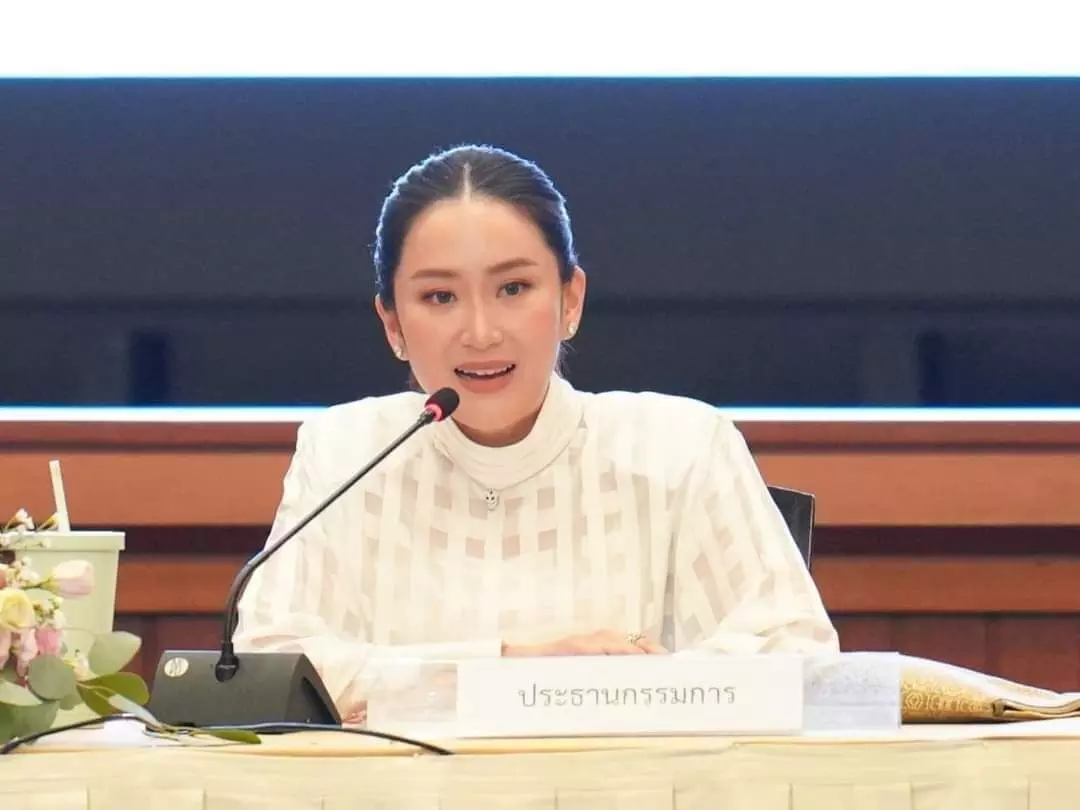Revitalising relations
Paetongtarn Shinawatra's election as the new prime minister of Thailand could be a turning point for Indo-Thai relations

India’s frequent travellers to Bangkok will now be greeted by Paetongtarn Shinawatra, commonly known by her nickname Ung Ing, a fresh and youthful face in Thai politics. At 37, she is Thailand's youngest Prime Minister and the second female leader, following in her aunt Yingluck Shinawatra’s footsteps. Her election is not just a political change but a strategic opportunity for India to build upon the warm relations established by her billionaire father, Thaksin. This period of renewal aligns with India’s broader goal of countering China’s increasing influence in Southeast Asia.
Paetongtarn’s ascension comes amid a backdrop of political upheaval in Thailand. Her predecessor, Prime Minister Srettha Thavisin, was recently removed from office by the Constitutional Court due to a controversial cabinet appointment. The court’s decision highlighted ongoing political instability in Thailand, stemming from a long history of frequent leadership changes and military interventions. This context underscores the importance of the new leadership in shaping future Indo-Thai relations.
The 2014 military coup in Thailand, which brought General Prayut Chan-o-cha to power, marked a significant shift in Thai politics. The coup was a response to massive protests against then-Prime Minister Yingluck Shinawatra, who was accused of being controlled by her brother, Thaksin Shinawatra, who was also ousted by a military coup in 2006 and set a precedent for the political turmoil that followed. Yingluck’s removal in 2014, and the subsequent military takeover, represented the second coup targeting the Shinawatra family within a decade. This historical context frames the current political landscape and the potential for renewed Indo-Thai relations under Paetongtarn Shinawatra.
During the tenures of Thaksin Shinawatra and Indian Prime Minister Atal Bihari Vajpayee, Indo-Thai relations saw significant growth. Thaksin’s tenure from 2001 to 2006, alongside Vajpayee’s from 1998 to 2004, was marked by enhanced economic and strategic cooperation. The two leaders focused on deepening bilateral ties through initiatives such as the India-Thailand Free Trade Agreement (FTA) negotiations and greater regional collaboration through forums like BIMSTEC. They prioritised maritime cooperation and connectivity, including the trilateral highway project involving India, Myanmar, and Thailand. This period saw a notable increase in trade, tourism, and cultural exchanges.
The relationship continued to flourish during Yingluck Shinawatra’s prime ministership (2011-2014). Her tenure saw an expansion of bilateral trade and closer defence cooperation with India. The two countries engaged in joint military exercises and enhanced naval collaboration, building on the foundation laid by Thaksin. While Thaksin focused on establishing stronger economic ties and regional cooperation, Yingluck’s administration took these efforts further with more concrete security and trade collaborations.
In recent years, the geopolitical landscape has shifted significantly. China’s influence in Thailand has grown substantially, with the country becoming a major player in Thailand’s development strategy through investments and trade. As of 2023, China’s cumulative investment in Thailand is estimated at around USD 16 billion, making it a leading investor. China’s involvement is largely driven by the Belt and Road Initiative (BRI), which focuses on large-scale infrastructure projects, including high-speed railways, ports, and industrial parks. Additionally, bilateral trade between Thailand and China reached approximately USD 115 billion in 2023, with China being Thailand’s largest trading partner.
In contrast, India’s investment in Thailand is comparatively modest. Indian investments are estimated at around $1.5 billion, and bilateral trade with Thailand was approximately $14 billion in 2023. India’s trade primarily includes textiles, gems, and pharmaceuticals, while its investments focus on sectors like pharmaceuticals, IT, and manufacturing. Despite active engagement in various sectors, India’s footprint in Thailand remains smaller compared to China’s extensive involvement.
China’s growing influence in Thailand presents a significant challenge for India. Thailand’s strategic location in Southeast Asia and its role within ASEAN make it a critical player in the region’s geopolitical dynamics. China’s extensive investments and military cooperation with Thailand, including arms sales and joint exercises, pose a direct challenge to India’s strategic interests. Thailand’s participation in China’s BRI, particularly in large-scale infrastructure projects, threatens to undermine India’s connectivity initiatives, such as the India-Myanmar-Thailand trilateral highway.
India’s strategic interest in strengthening ties with Thailand is also driven by the need to counterbalance China’s assertive policies and to ensure regional stability. Thailand’s proximity to India’s northeastern region heightens the strategic significance of its alignment in the face of China’s expansionism. By enhancing its partnership with Thailand, India aims to maintain its influence in Southeast Asia and safeguard its regional security interests.
The election of Paetongtarn Shinawatra offers India a renewed opportunity to reinforce its strategic partnership with Thailand. As the new Prime Minister, Paetongtarn has the potential to build on the legacy of her father’s warm relations with India. The current political climate in Thailand, shaped by the recent upheavals and ongoing influence of military and royalist factions, presents both challenges and opportunities for India.
By focusing on deeper economic, defence, and cultural collaborations, India can enhance its strategic partnership with Thailand and contribute to regional stability. The renewed partnership will be a key component of India’s efforts to balance the expanding presence of China and secure its strategic interests in Southeast Asia.
In summary, Paetongtarn Shinawatra’s election as Prime Minister of Thailand provides a significant opportunity for India to rejuvenate its strategic partnership with Thailand. Building on the legacy of her father, Thaksin Shinawatra, and addressing the challenges posed by China’s growing influence, India has the potential to strengthen its ties with Thailand and enhance regional stability.
The writer is a veteran journalist, author, political strategist and founder of Commonwealth Thought Leader. Views expressed are personal



